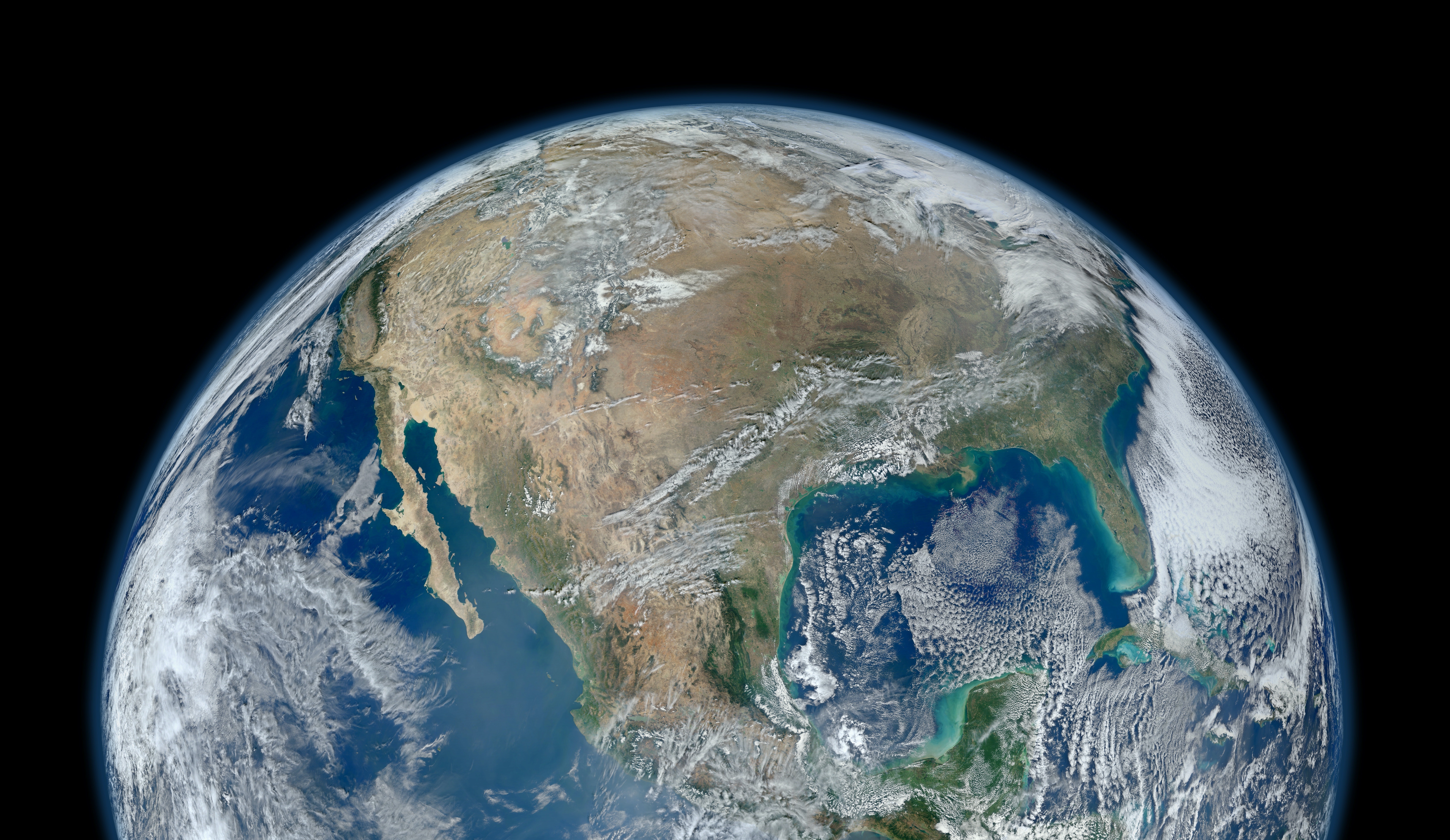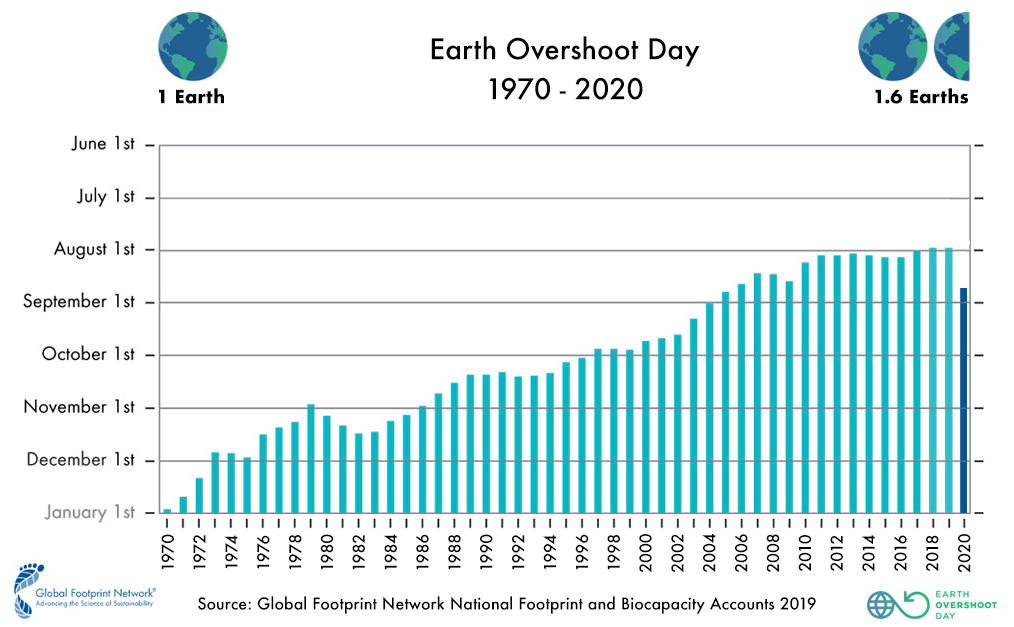Earth Overshoot Day Pushed Back Due to Coronavirus Pandemic

This year, Earth Overshoot Day falls on Saturday, August 22 – three weeks later than it did in 2019, an indication of the coronavirus pandemic’s impact on human activity and our impact on the planet. However, there’s more work to be done to build a lasting positive relationship between humanity and the planet.
What is Earth Overshoot Day?
Earth Overshoot Day marks when humanity’s use of natural resources exceeds the amount of resources the planet is able to regenerate within the year. In other words, the date marks when we have maxed out our resource budget and start accumulating debt to the planet.
This is calculated by the Global Footprint Network, an international research organization that equips decision-makers with the tools they need to help the human economy operate within the ecological limits of the planet. The same way an accountant measures income against expenditures, the Global Footprint Network measures the supply and demand of ecological resources.
So, how is this measured exactly? First, researchers calculate the earth’s biocapacity, which is the amount of ecological resources the planet is able to regenerate each year. Next, biocapacity is divided by humanity’s ecological footprint (determined by the demand for resources that year) then multiplied by 365 for each day of the year.
(Earth’s Biocapacity / Humanity’s Ecological Footprint) x 365 = Earth Overshoot Day
The Global Footprint Network derives its information from over 15,000 data points, mostly from sources provided by the United Nations.

Earth Overshoot Day Delayed by Coronavirus
This year, the forced slowdown in human activity caused by the pandemic had a number of positive impacts on the environment, causing us to conserve resources and thus push back the date of Overshoot Day.
On average, humans use 60% more than the earth is able to regenerate. But, with much of the world on lockdown this year, a reduction in fossil fuel usage from transportation, aviation, industrial, and power sectors reduced carbon emissions by 15%. Also, reduced demand for forest products reduced the forestry footprint by 8.4%.
While reducing our footprint is the goal, the results of the pandemic are not a sustainable solution.
“The tragedy of this year is that the reduction of carbon emissions is not based on a better infrastructure such as better electricity grids or more compact cities,” Mathis Wackernagel, founder and president of the Global Food Network, told DW. “We need to move the date by design, not by disaster.”
Establishing a Regenerative Ecosystem
So, how do we create a more sustainable approach to healing the planet? As Wackernagel said, we need to improve our infrastructure and design new ways of eating, making, moving, and living that can support a regenerative ecosystem.
By creating a system that can restore, renew, and revitalize our natural resources, we’ll be able to reduce humanity’s footprint and create a positive impact on environmental conditions. Thankfully, organizations like Ecosystem Restoration Camps and Kiss the Ground and are leading the charge.
Ecosystem Restoration Camps bring together farmers, landowners, community members, and experts to restore degraded ecosystems. Members of the camps take a hands-on approach at rehabilitating land that has been damaged by unsustainable agricultural practices. By increasing biodiversity, biomass, and soil organic mass, they have helped reverse ecological degradation in 23 camps around the world.
Become a member to support Ecosystem Restoration Camps.
Kiss the Ground is a non-profit dedicated to increasing societal awareness about regenerative solutions. They also have several programs, such as their Farmland Program which provides farmers the resources they need to transition their practices to more ecologically positive processes. Kiss the Ground also has a documentary, narrated by Woody Harrelson, premiering on Netflix on September 22.
Support Kiss the Ground and join the Planet Home network to learn more about regenerative solutions.


Leave a Reply